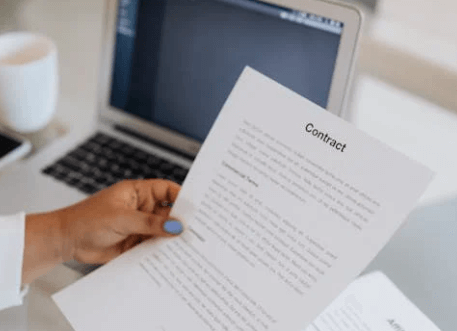Rent-to-own agreements can seem like a great path to homeownership, but it’s important to understand the fine print before signing. These arrangements typically require a non-refundable option fee, often between 1-5% of the home’s price, and may involve higher-than-market rent with a portion credited toward your future down payment. Navigating the complexities of rent-to-own contracts in Florida requires careful attention to detail, from securing an independent inspection to understanding what happens if you cannot secure a mortgage at the end of the term. As renowned Florida real estate investors and cash house buyers, Steve Daria and Joleigh have seen many people succeed with these agreements, but they have also seen many who have lost their option fees. They emphasize that while rent-to-own can be a great path for some, it is not a one-size-fits-all solution. Exploring all your options is key before committing to rent-to-own contracts in Florida. To get expert guidance on whether this path is right for you or to explore faster, more direct alternatives, book a free, no-obligation discussion with Steve Daria and Joleigh today.
The Basics of Rent-to-Own Real Estate Agreements
A rent-to-own—or lease option—is a contractual agreement under which a tenant can purchase the property at a set price at a future date within a specified period.
In Florida, these contracts are frequently used to facilitate home sales where potential buyers cannot secure a traditional mortgage.

The agreement includes two main components:
The Lease Agreement
The initial rental contract outlines standard lease terms and conditions. It includes the monthly rental amount, the length of the lease period, and each party’s maintenance and repair responsibilities.
The Option to Purchase
The option agreement presents a purchase price for the property, usually higher than the current market rate, which the tenant can exercise within an agreed-upon timeframe. The tenant pays the landlord a one-time, non-refundable fee to secure this option.
Both components are legally binding, protecting the rights of both the tenant and the landlord. They also detail the consequences of missing rental payments or breaching any terms of the agreement.
Legal Framework in Florida
Rent-to-own contracts in Florida are regulated by landlord-tenant, real estate, and contract laws. Both parties involved must clearly understand their respective rights and obligations.
Florida stipulates that any lease option contract longer than 12 months must be notarized, while any agreement to buy or sell real property within two years must be in writing to be legally enforceable. This offers a significant layer of protection and clarity for all involved.
The Florida Residential Landlord and Tenant Act
This act outlines residential landlords’ and tenants’ specific duties, rights, and remedies.
It covers various aspects, such as the payment and return of security deposits, access to the property, and the termination of leases.
Real Estate Commission Rules
The Florida Real Estate Commission, which operates under the Florida Department of Business and Professional Regulation, also has specific rules that apply to rent-to-own arrangements.
Licensed real estate professionals engaging in these transactions must ensure compliance with these regulations. Understanding these legal frameworks is critical to avoiding disputes and ensuring a smooth transaction.
Benefits and Risks for Landlords and Tenants
Renters and landlords are drawn to rent-to-own agreements for various reasons.
Benefits for Tenants
Tenants can lock in the home’s purchase price, allowing them to buy at a price known when their financial situation might be more conducive.
This situation can be particularly appealing for those who need time to improve their credit scores or save for a down payment.
Potential Risks for Tenants
On the flip side, if the tenant cannot commit to the purchase option at the end of the lease term, they may forfeit the option fee and any additional rent premium paid. This could be a substantial loss if not prepared for.
Benefits for Landlords
Landlords benefit from a higher upfront payment and monthly rent amounts that may be partially credited toward the purchase price.
Additionally, if the tenant doesn’t exercise the option, the property owner keeps any payments received and the property.
Potential Risks for Landlords
On the downside, if the tenant does exercise the purchase option, the landlord will have to sell the property at the agreed price, regardless of the market value, which could result in a missed opportunity for a larger sale.
Navigating these benefits and risks is essential for any landlord or tenant considering a rent-to-own agreement.
Critical Considerations for Creating a Rent-to-Own Contract
A well-structured rent-to-own contract is essential for clarity and to avoid future disputes. Here are some vital points to ensure are addressed in the agreement:
Property Value
The agreement must stipulate how the property’s future value is determined, especially in the case of market fluctuations. This can have a significant impact on the profitability of the agreement for both parties.
Maintenance Responsibility
Precise definitions of maintenance and repair responsibilities should be outlined in the lease to ensure everything is clear.
Option Consideration
This upfront fee can be substantial and should be negotiated carefully. Tenants should consider whether it’s refundable, and landlords should evaluate its significance to the property’s value.

Rent Premium
In a rent-to-own contract, a portion of the rent paid each month is typically credited toward the future purchase of the property.
Negotiating this aspect of the agreement is crucial for tenants as it directly impacts their ability to accumulate equity in the property and eventually transition from renting to homeownership.
By negotiating a higher percentage of the rent to be allocated toward the down payment or purchase price, tenants can increase their motivation and commitment to ultimately purchasing the property.
This incentive can also make the rent-to-own arrangement more appealing than traditional renting, as it offers the opportunity to build toward homeownership while renting.
Purchase Price
Setting the purchase price in advance is a critical aspect of a rent-to-own agreement, as it provides clarity and stability for both the tenant-buyer and the landlord-seller.
This predetermined price considers various factors, including current market conditions, anticipated changes in property values, and the duration of the lease agreement.
By establishing the purchase price upfront, both parties mitigate the risk of uncertainty and potential disagreements regarding the property’s value at the time of purchase.
This foresight allows the tenant-buyer to plan and budget effectively for their future homeownership, knowing the amount they will need to pay to acquire the property.
Financing
It’s essential to assess the tenant’s financial readiness to ensure that they’ll be able to secure a mortgage when the time comes to exercise the purchase option.
The Market and Economic Climate
Both tenants and landlords are affected by the market and economic climate.
For tenants, a rent-to-own agreement can be a savvy move in a rising market, whereas landlords may prefer higher rent in a seller’s market.
Access to market trends and economic forecasting can significantly inform decisions related to rent-to-own contracts.
The Importance of Real Estate Agents and Attorneys
Professional real estate agents and real estate attorneys can provide valuable expertise in creating and understanding the terms of a rent-to-own agreement.
Their legal and market knowledge ensures that the agreement aligns with both parties’ objectives and complies with state laws.
Resolving Disputes
Even with a meticulously crafted contract, disputes can arise.
In Florida, mediation is often an effective and cost-friendly way to resolve issues outside of court.
The Florida Bar Association can assist in finding a qualified mediator or attorney.
Takeaway
- What is a Rent-to-Own Contract? Rent-to-own contracts in Florida combine a lease with a purchase option, making them ideal for aspiring homeowners who need to build credit or save a down payment. You live in the home while working towards mortgage qualification.
- Costs and Fees: Rent-to-own contracts in Florida involve upfront costs, such as a non-refundable option fee, typically 1-5% of the purchase price. Monthly rent is often higher than market rates, with a portion of the rent credited toward your future purchase.
- Protections and Precautions: For Florida rent-to-own contracts, protect yourself: insist on an independent inspection and appraisal before signing. Ensure the contract details purchase price, option term, maintenance, and secure rent credits in an escrow account.
- Risks and Challenges: A key risk with rent-to-own contracts in Florida is failing to secure a mortgage before the option period ends, which could mean losing your option fee and rent credits. Additionally, Florida’s changing real estate market could affect the home’s value, making it harder to qualify for financing.
- Alternatives to Rent-to-Own: If rent-to-own contracts in Florida seem risky or unfavorable, explore other options, such as improving your credit to qualify for a traditional mortgage or pursuing a direct sale. For homes needing major repairs, selling to a cash buyer offers a faster, simpler alternative.
**NOTICE: Please note that the content presented in this post is intended solely for informational and educational purposes. It should not be construed as legal or financial advice or relied upon as a replacement for consultation with a qualified attorney or CPA. For specific guidance on legal or financial matters, readers are encouraged to seek professional assistance from an attorney, CPA, or other appropriate professional regarding the subject matter.

